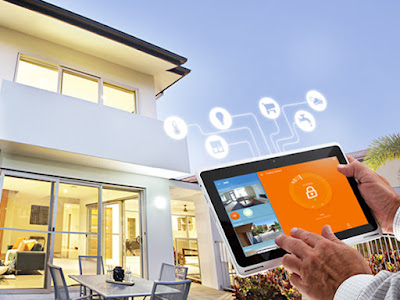Smart home as a service or also referred to as (SHaaS) is a type of service where instead of consumer, service provider selects, installs, maintains, upgrades, and programs smart home devices. Smart home as a service uses the subscription-based business models with monthly payment from consumers. Novel technologies are used in SHaaS including connected devices, sensors, cloud intelligence, and social media to combine a variety of important services into a simple-to-use app that allows service providers to make their consumers’ lives effortless and simple. There are three major aspects of smart home as a service namely intelligence, connectivity, and functionality where it can help the user to function properly.
How Smart Homes Work
A smart home’s devices are connected with each other and can be accessed through one central point—a smartphone, tablet, laptop, or game console. Door locks, televisions, thermostats, home monitors, cameras, lights, and even appliances such as the refrigerator can be controlled through one home automation system. The system is installed on a mobile or other networked device, and the user can create time schedules for certain changes to take effect.
Smart home appliances come with self-learning skills so they can learn the homeowner’s schedules and make adjustments as needed. Smart homes enabled with lighting control allow homeowners to reduce electricity use and benefit from energy-related cost savings. Some home automation systems alert the homeowner if any motion is detected in the home when they're away, while others can call the authorities—police or the fire department—in case of imminent situations.
Smart homes can feature either wireless or hardwired systems—or both. Wireless systems are easier to install. Putting in a wireless home automation system with features such as smart lighting, climate control, and security can cost several thousand dollars, making it very cost-friendly.
Hardwired systems, on the other hand, are considered more reliable and are typically more difficult to hack. A hardwired system can increase the resale value of a home. But there is a drawback—it's fairly expensive. Installing a luxury and hardwired smart system can cost homeowners tens of thousands of dollars




No comments:
Post a Comment